Bio21 Director’s Message - The Importance of Events @Bio21 - 2 July 2021
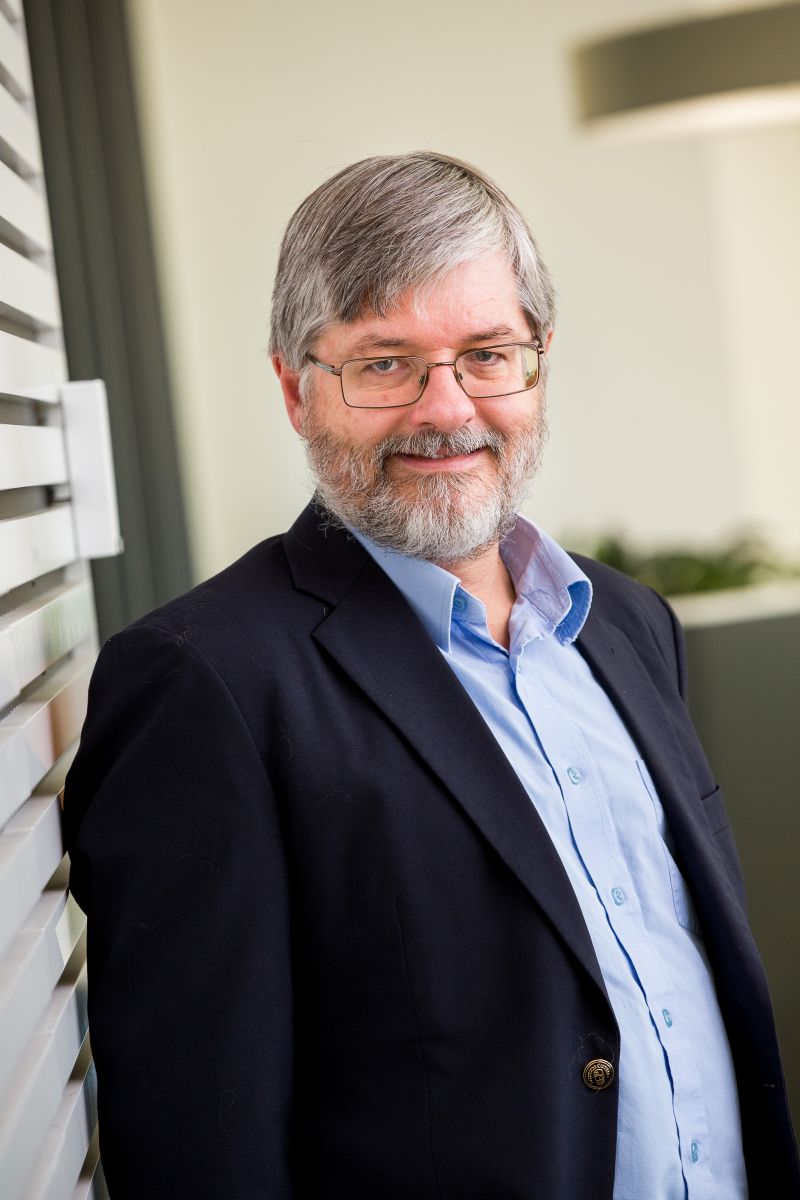 Over the past year, we have received public health messages as we entered into and then emerged from one ‘lockdown’ after the other. We’ve been told to avoid gathering in groups, in our homes and neighbourhoods, at the Institute and at the university. Social and work gatherings have become burdened with the risk of being potential ‘super-spreading’ events. Coronavirus is the party-pooper in the room and best avoided. We are to keep distance (1.5m), elbow-bump, remain at home and wear masks. We have been told to care for each other by staying apart. It’s been such a difficult message and yet this is what we’ve had to do to contain the spread of the virus.
Over the past year, we have received public health messages as we entered into and then emerged from one ‘lockdown’ after the other. We’ve been told to avoid gathering in groups, in our homes and neighbourhoods, at the Institute and at the university. Social and work gatherings have become burdened with the risk of being potential ‘super-spreading’ events. Coronavirus is the party-pooper in the room and best avoided. We are to keep distance (1.5m), elbow-bump, remain at home and wear masks. We have been told to care for each other by staying apart. It’s been such a difficult message and yet this is what we’ve had to do to contain the spread of the virus.
Fortunately, technology such as Zoom and Teams has allowed us to meet each other online. Yet, despite all the innovative online alternatives, we’ve retained the desire for in-person meetings, gatherings and events and given the ‘all-clear’ we rush to see our friends, family and colleagues. It’s only human! Some things are hard to recreate online.
This year has seen a slow and cautious approach to events at Bio21. Though few, they’ve been significant:
And so, on 16th March, the Department of Biochemistry and Pharmacology held its launch event at Bio21 to celebrate the merging of the departments of Biochemistry and Molecular biology and Pharmacology and Therapeutics. Careful to adhere to university and government COVIDSafe rules, guests received individually boxed cupcakes. The excitement at the ability to gather again was palpable. Everyone seemed so glad to meet and to celebrate together as a new department. It’s hard to experience this sense of celebration and belonging online.
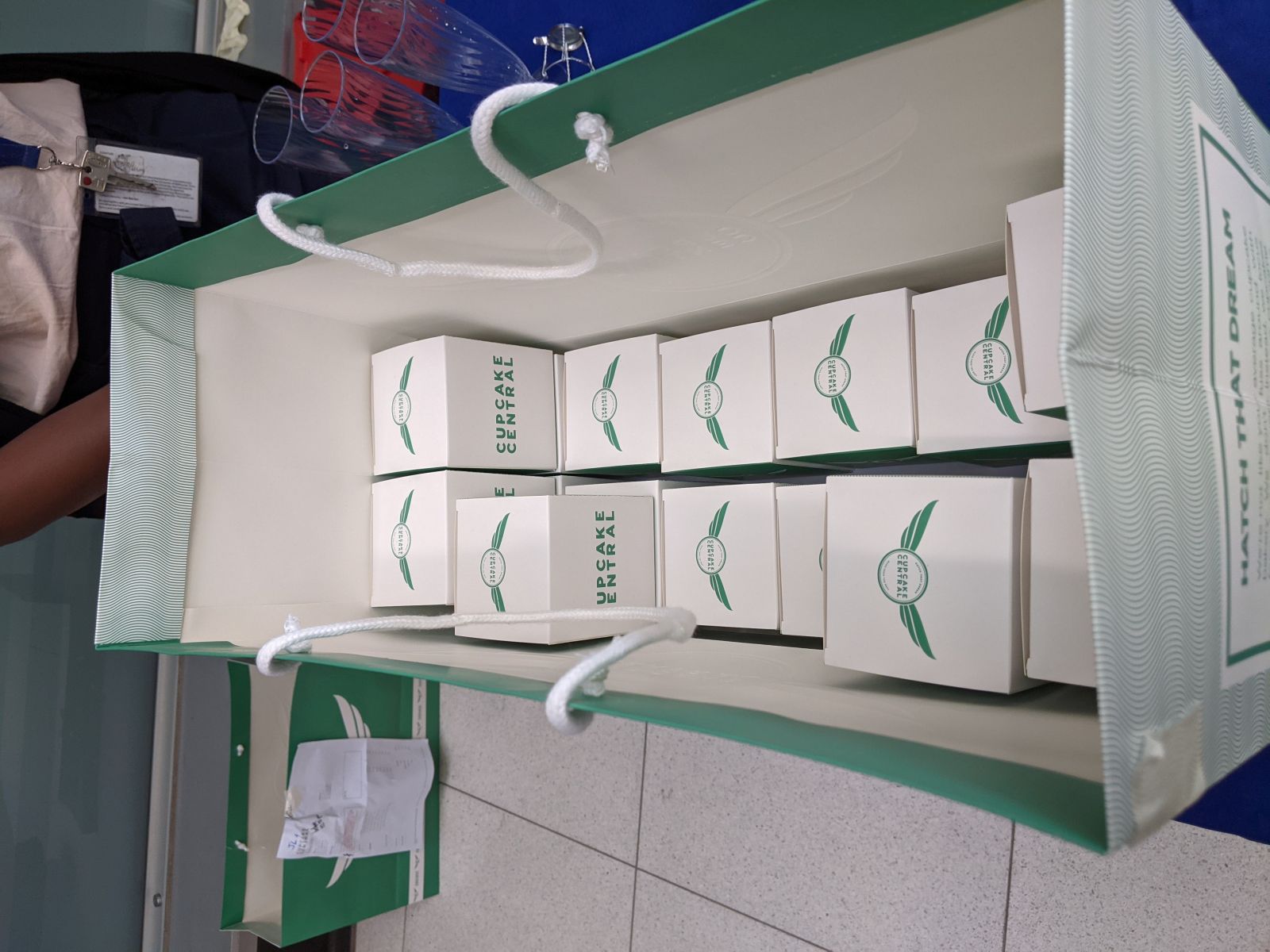 |
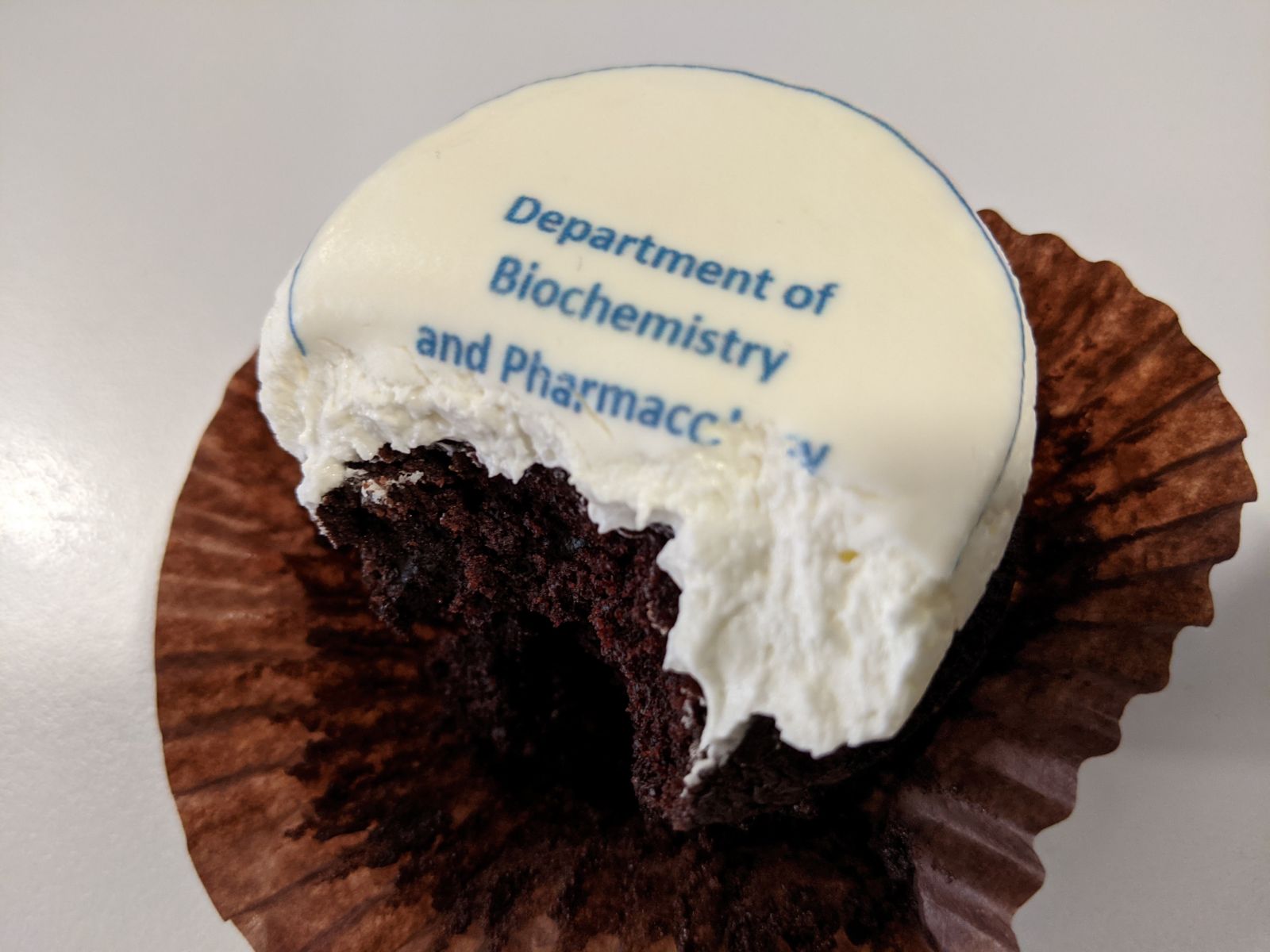 |
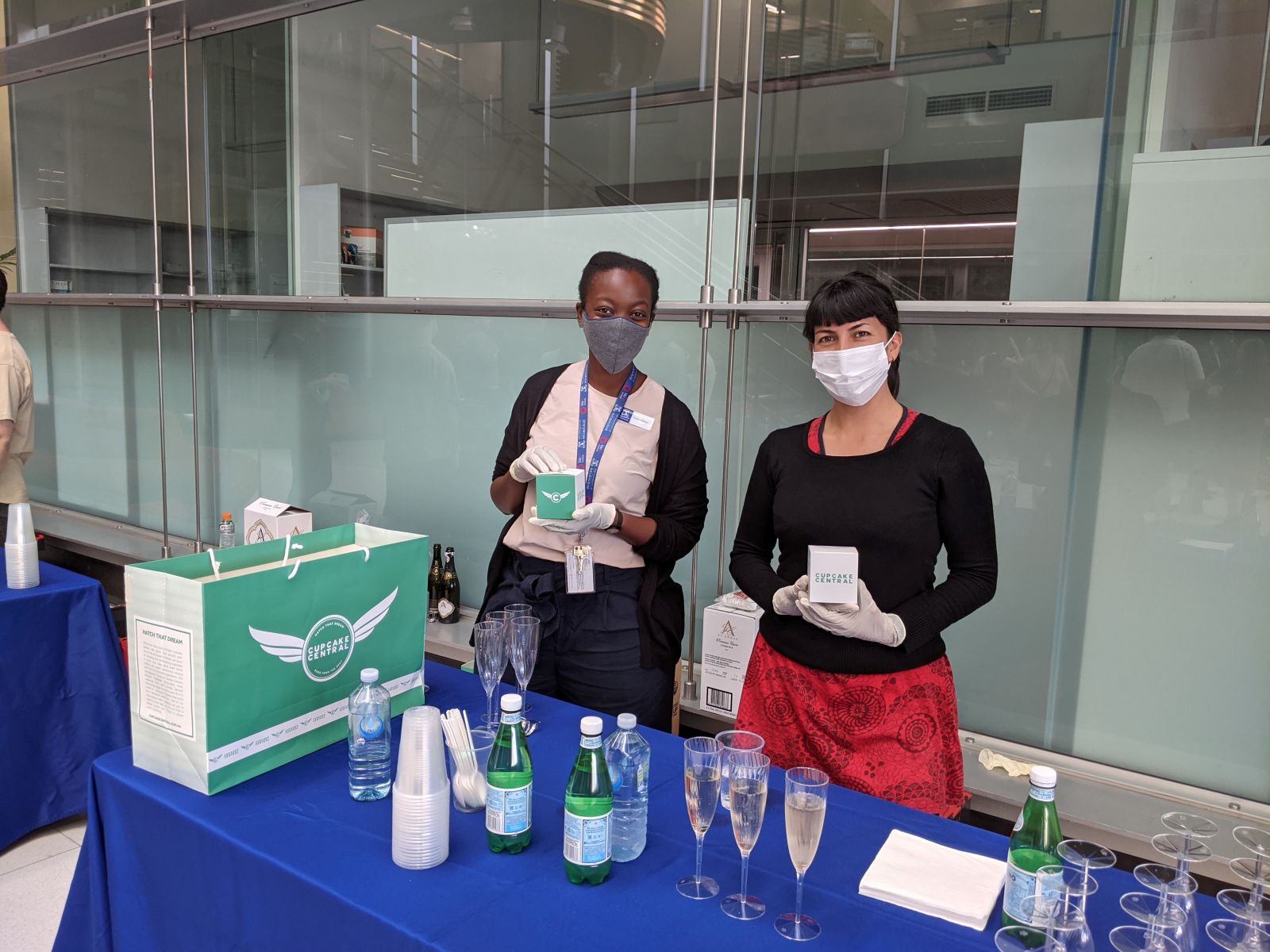 |
Launch of Department of Biochemistry and Pharmacology.
A month later, 16th April, we held our Bio21 ‘welcome back’ morning tea. We welcomed the O’Bryan and Leung groups to the Institute; congratulated and clapped Andrew Holmes, on receiving the Matthew Flinders Medal from the Australian Academy of Sciences and Justine Mintern on her ARC Linkage grant; caught up on Institute news and struck up a conversation as we queued for Avist café coffee and more boxed cupcakes with our Institute peers and colleagues. It was almost like old times. Our Institute is international and incredibly diverse, with staff and students from university and industry groups. When we come together in this way, it helps us to feel that we belong to Bio21. We get to know each other better and start an informal conversation that can open up a myriad of possibilities, from shared insights, to shared grants and projects. It’s what Bio21 has always been about. It’s harder to connect as an Institute community like this online.
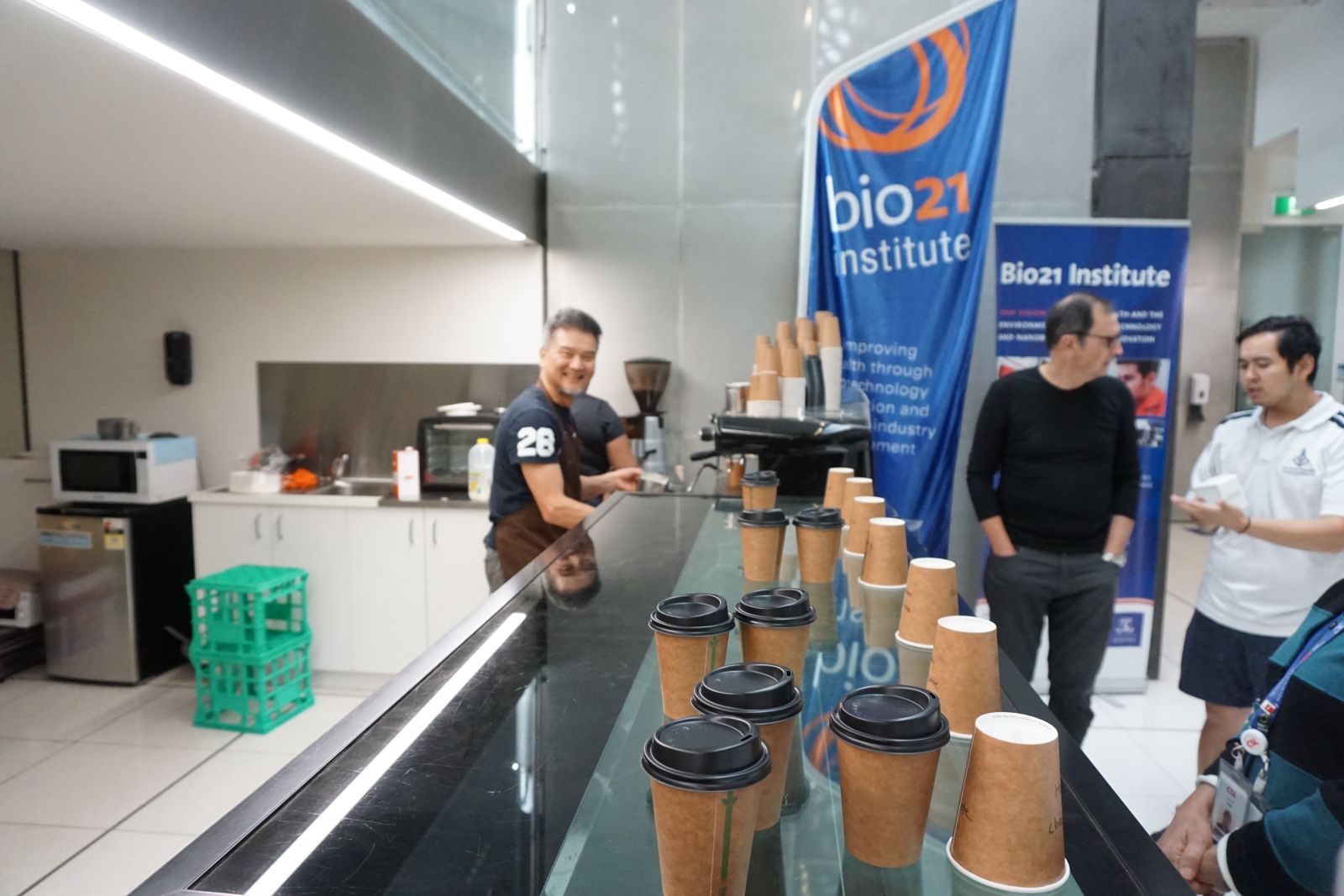 |
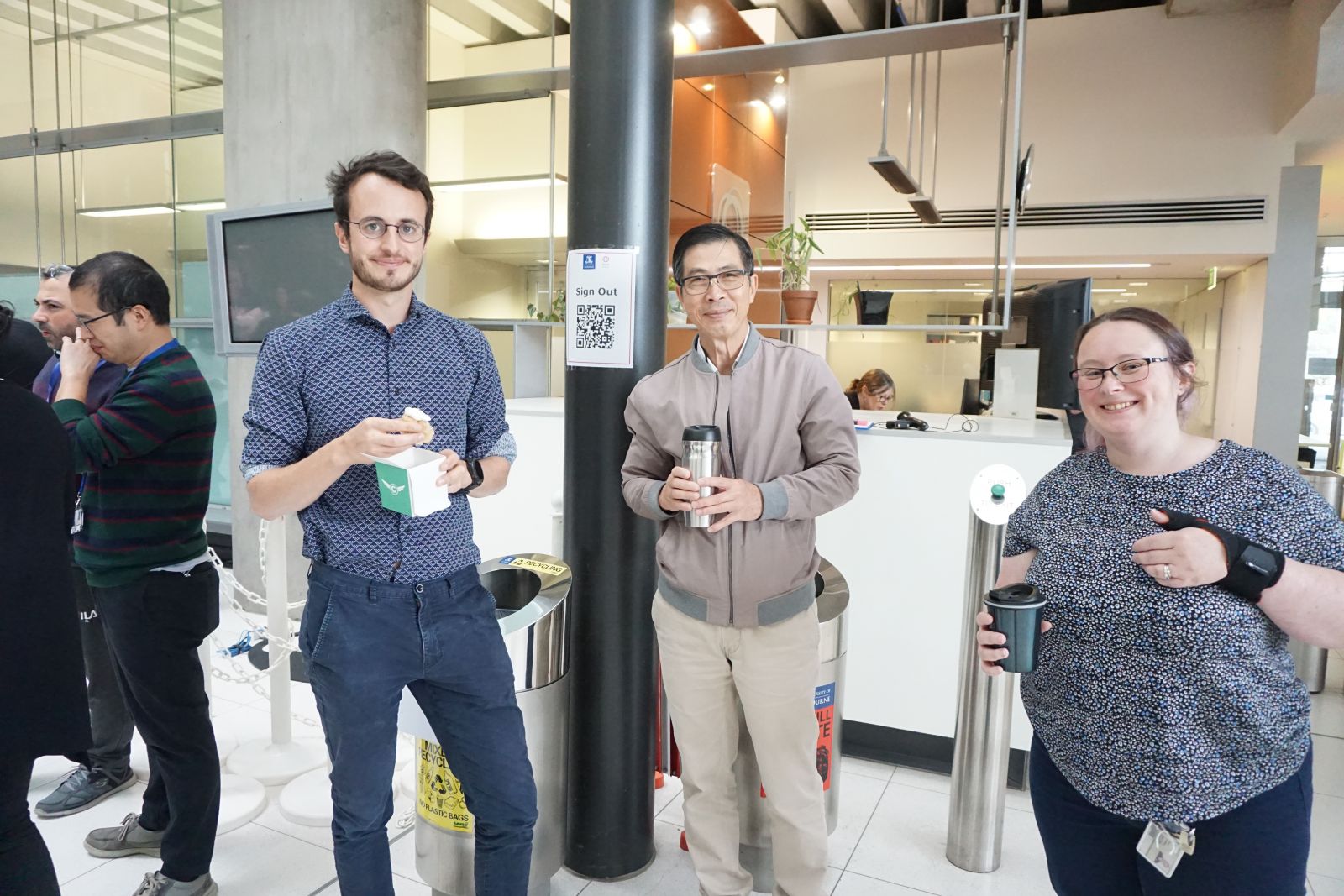 |
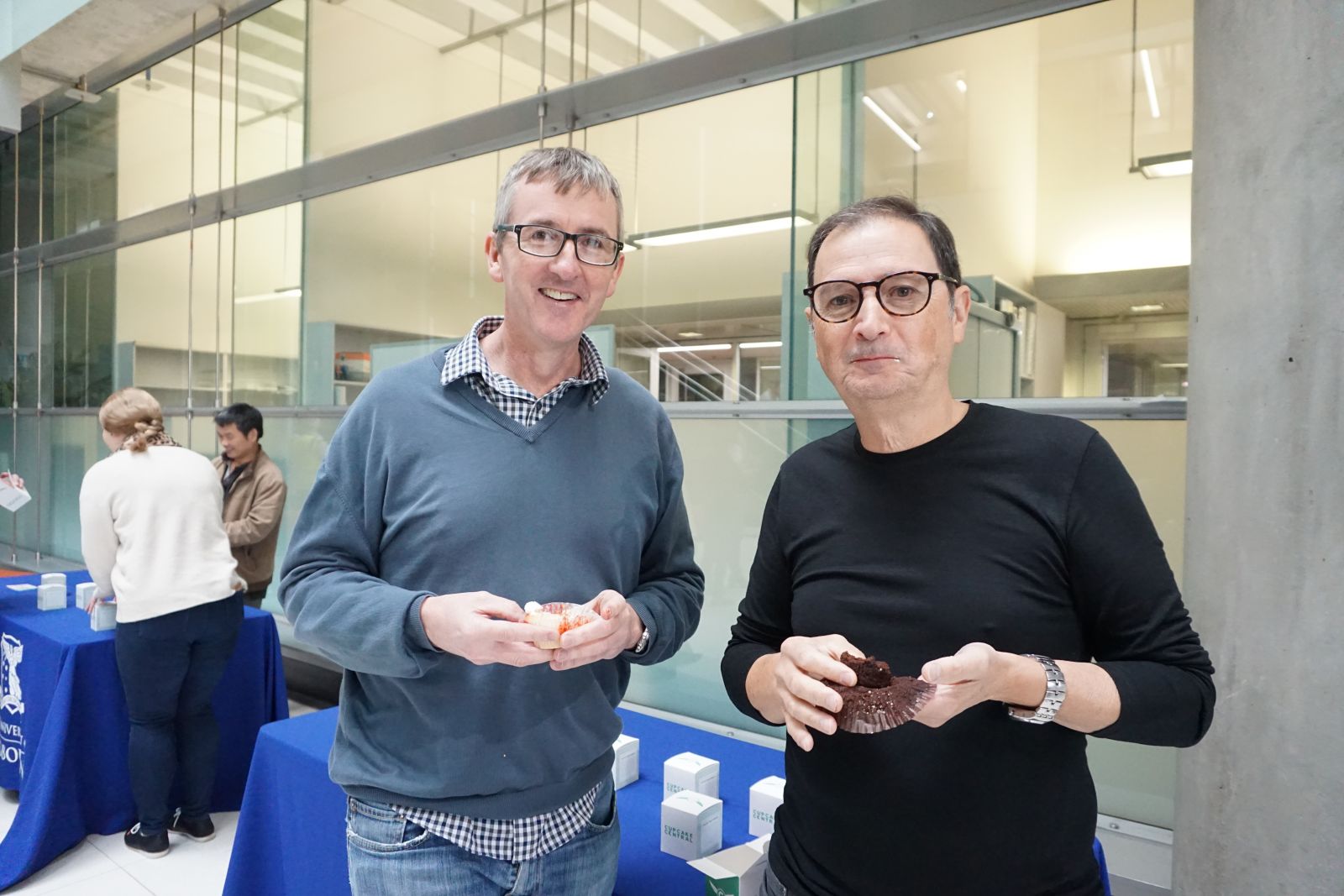 |
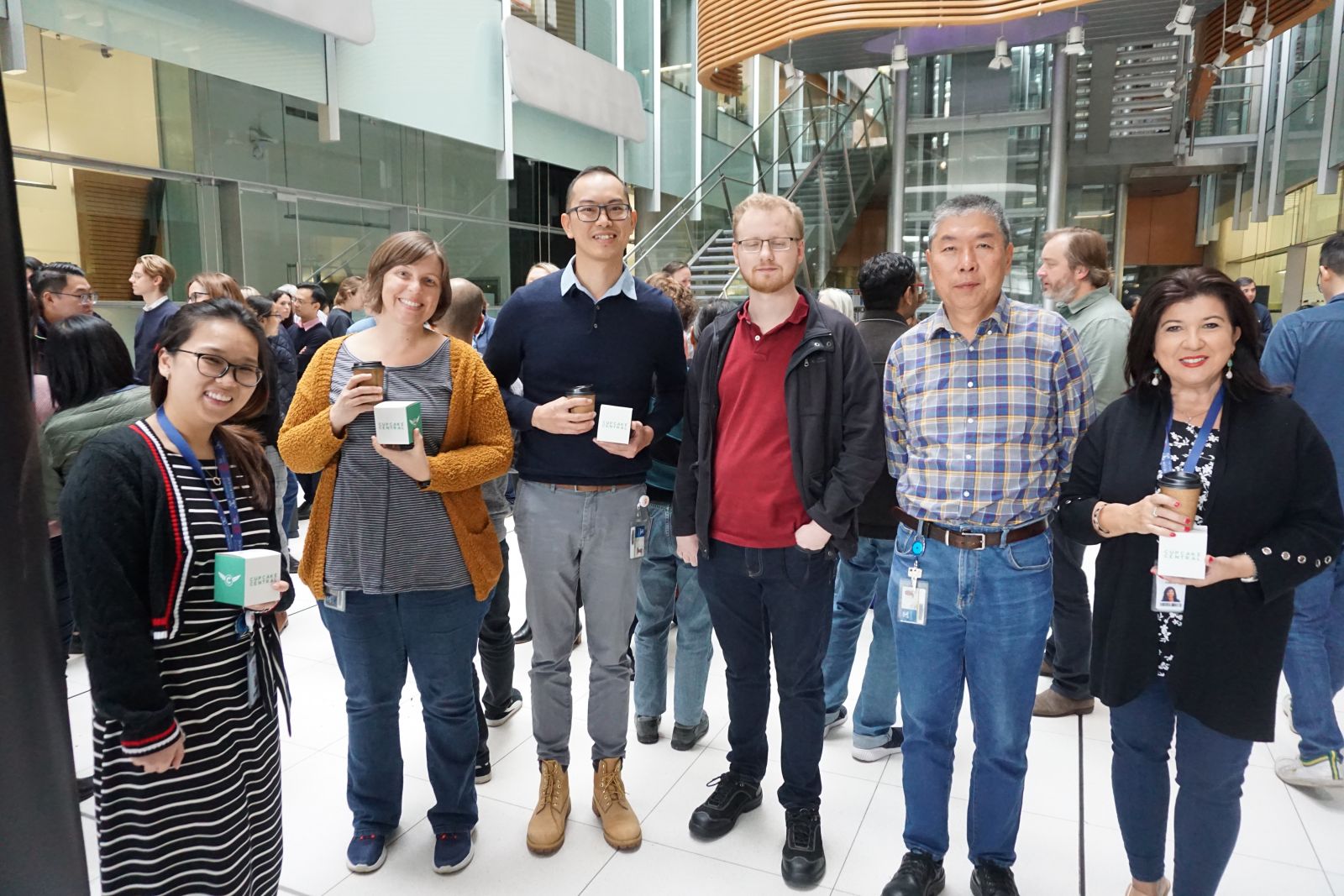 |
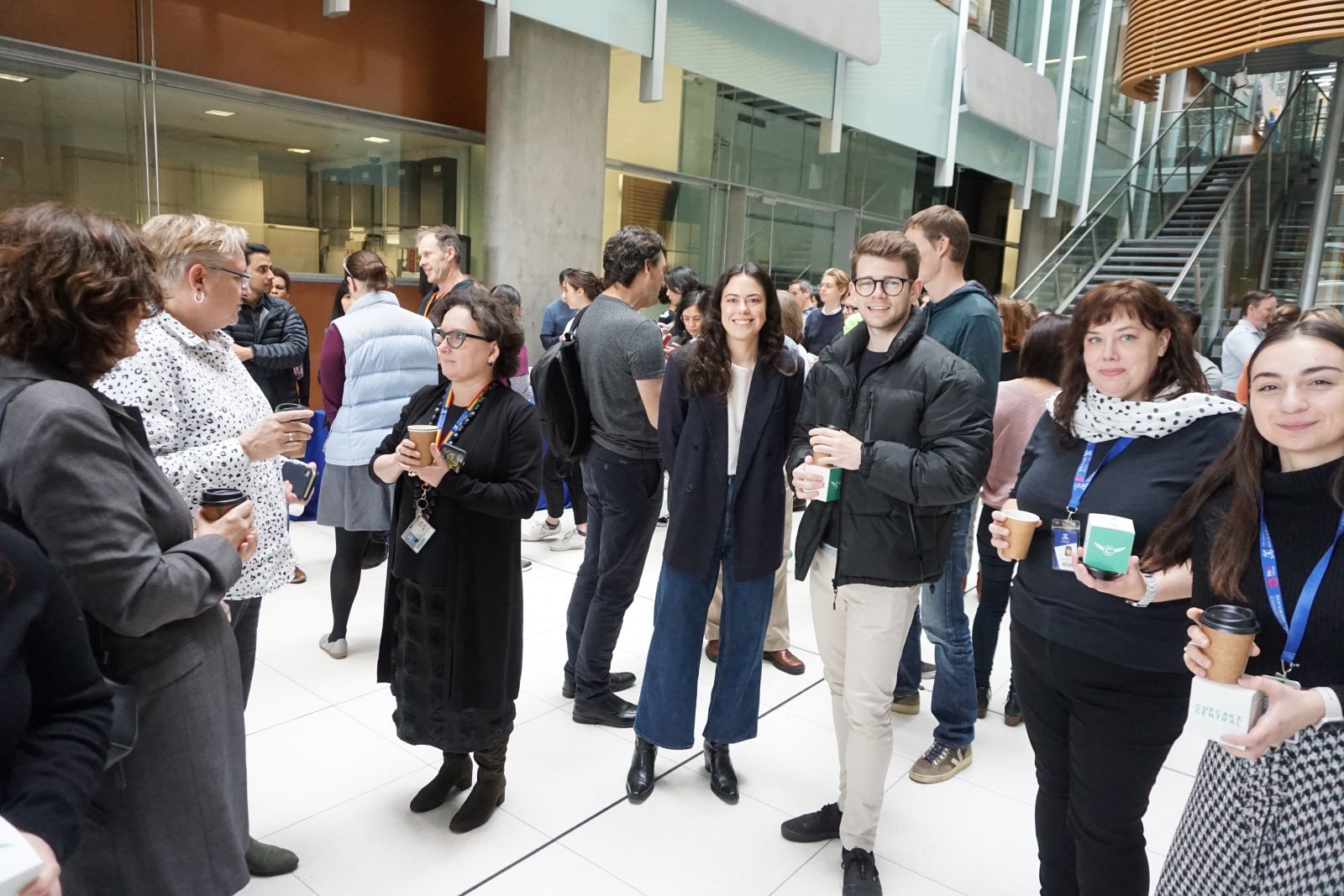 |
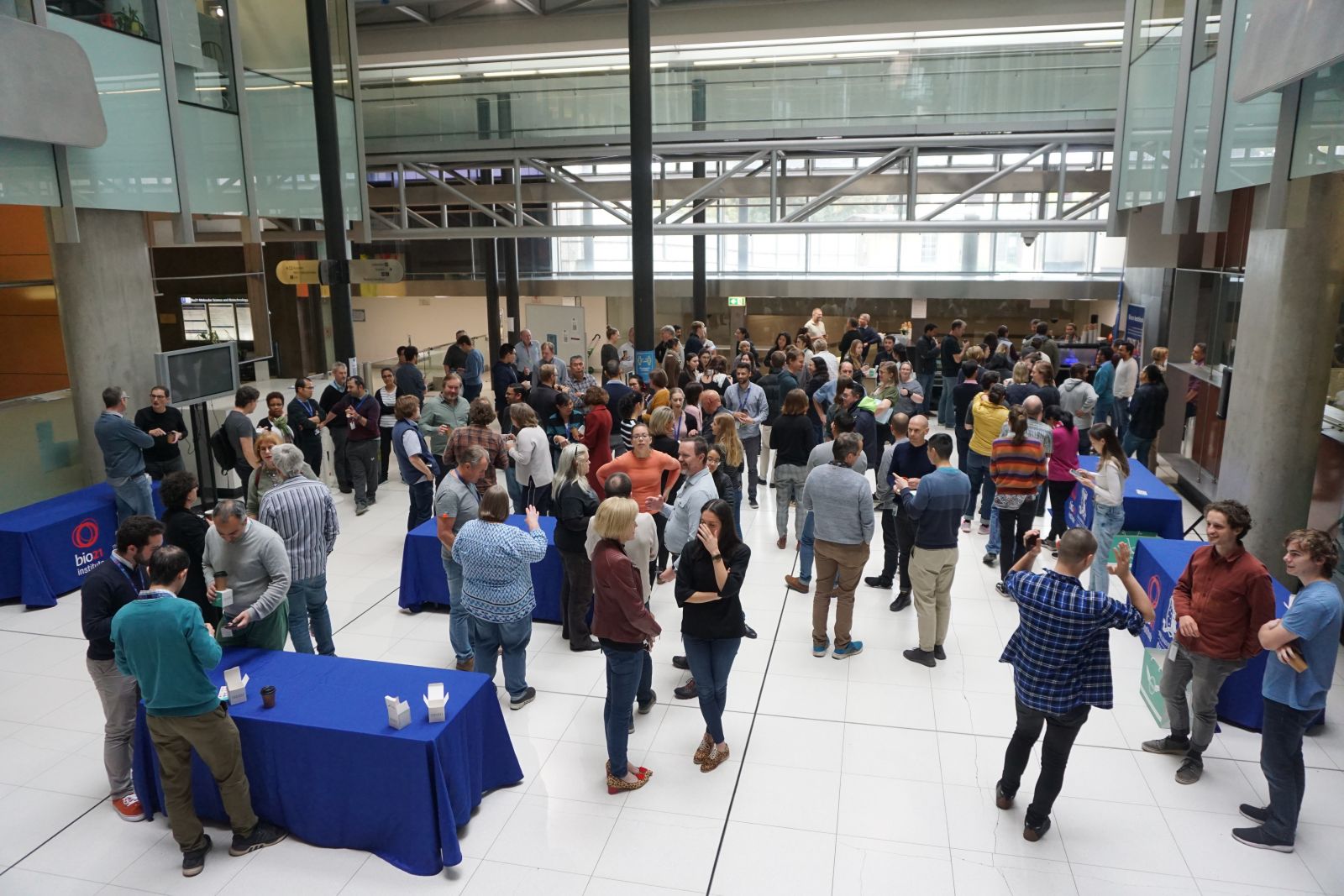 |
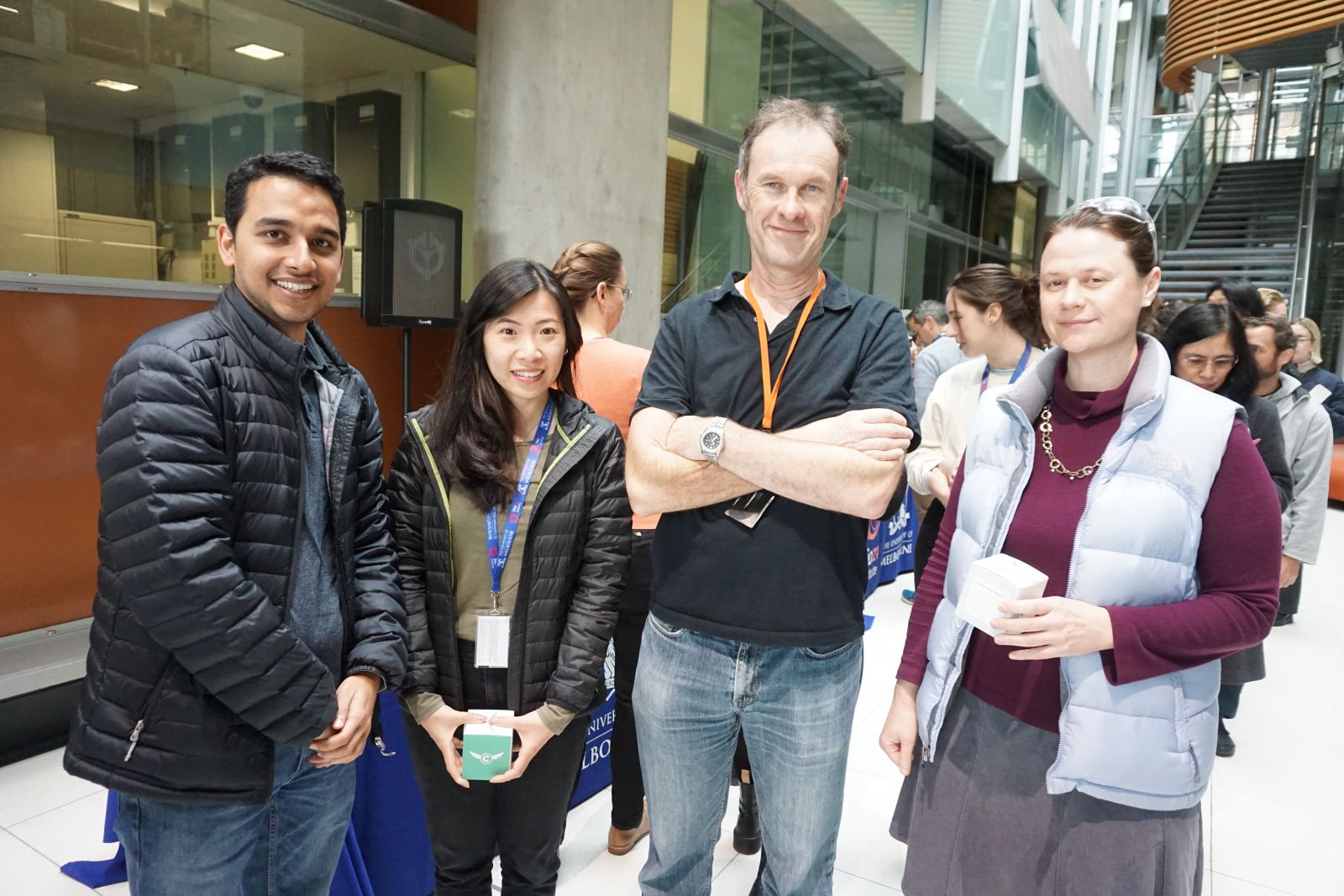 |
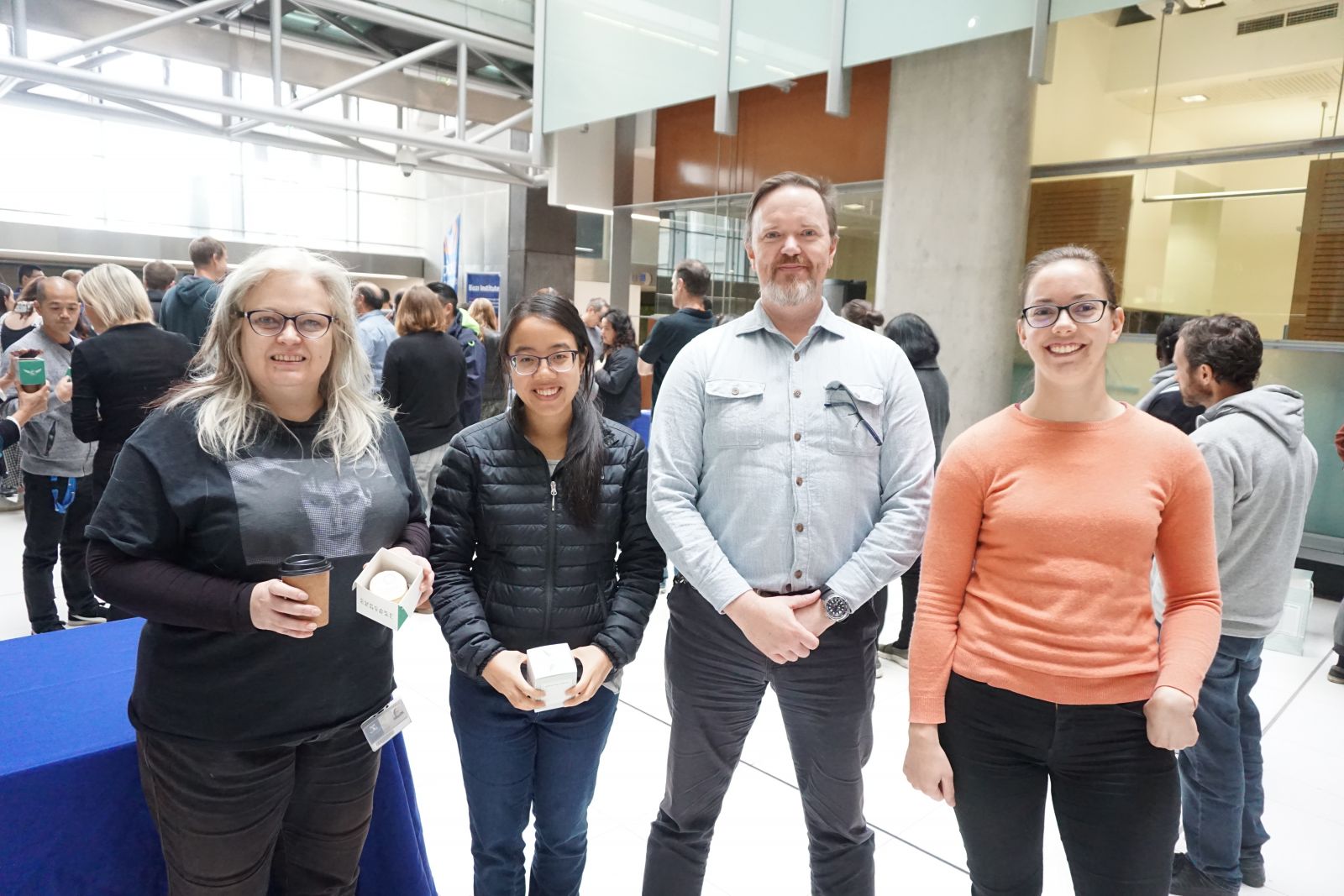 |
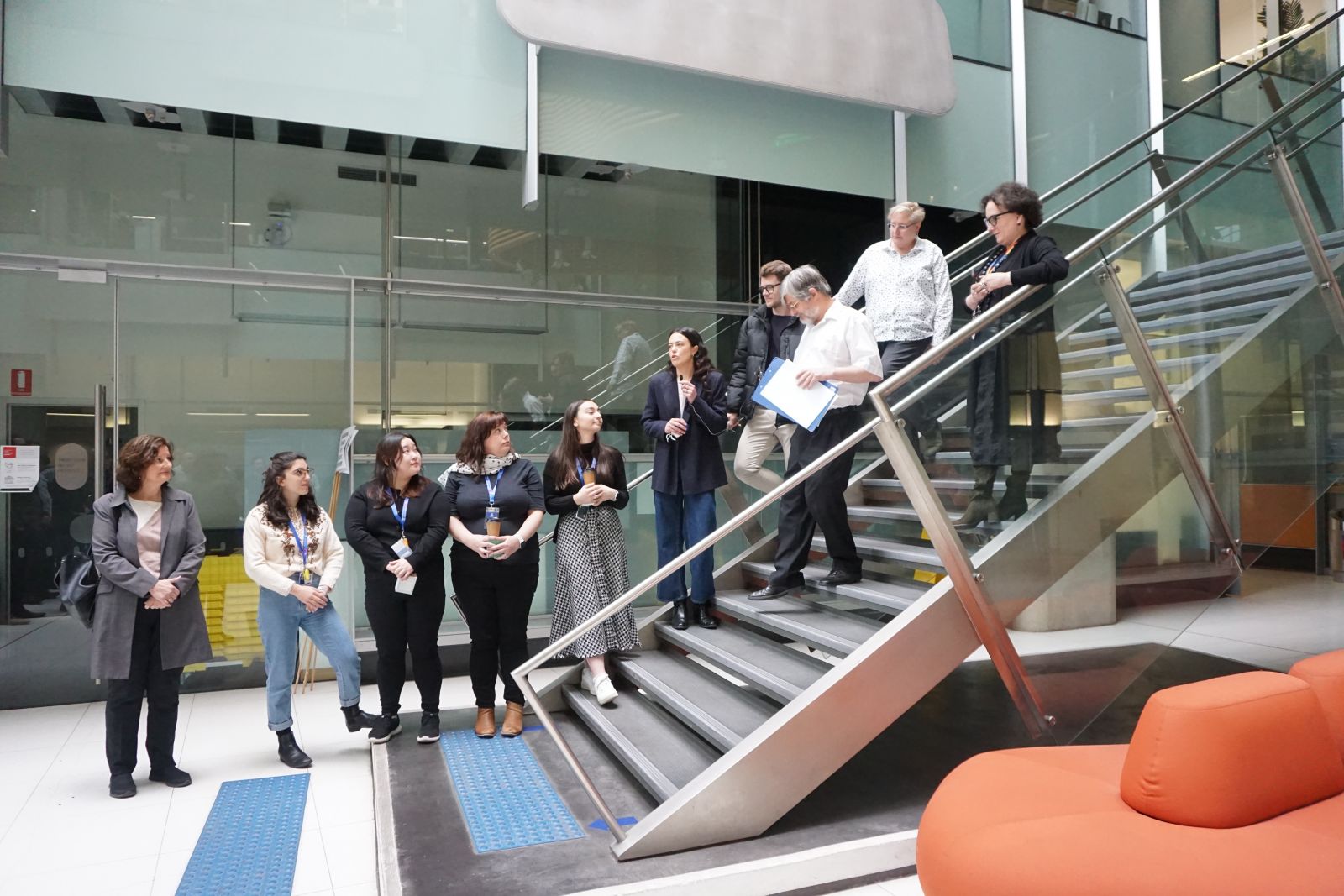 |
Bio21 ‘welcome back’ morning tea.
On the 13th May, forty year 10 students from Loreto Mandeville Hall visited Bio21 to hear about what it’s like to be a scientist and the possibilities that arise from pursuing a STEM career. In our auditorium, Claire Weekly, Veronique Paris, Stefanie Portelli and Sepideh Valimehr shared their own career stories and research with the students, before showing them the Institute. During 2020 Bio21 also hosted online school engagement events, but with a few exceptions, it was challenging to engage with the high school students, who switched off their cameras during presentations and asked few questions. In person events have a different feel; there is the thrill of actually meeting ‘real’ scientists and walking into ‘real’ laboratories and facilities, rather than having a virtual experience on a screen. This could be what it takes to plant the first seeds of curiosity and spark excitement for science in a young person’s heart and mind. As amazing as virtual tours can be nowadays, somehow it only feels real, when you are actually there.
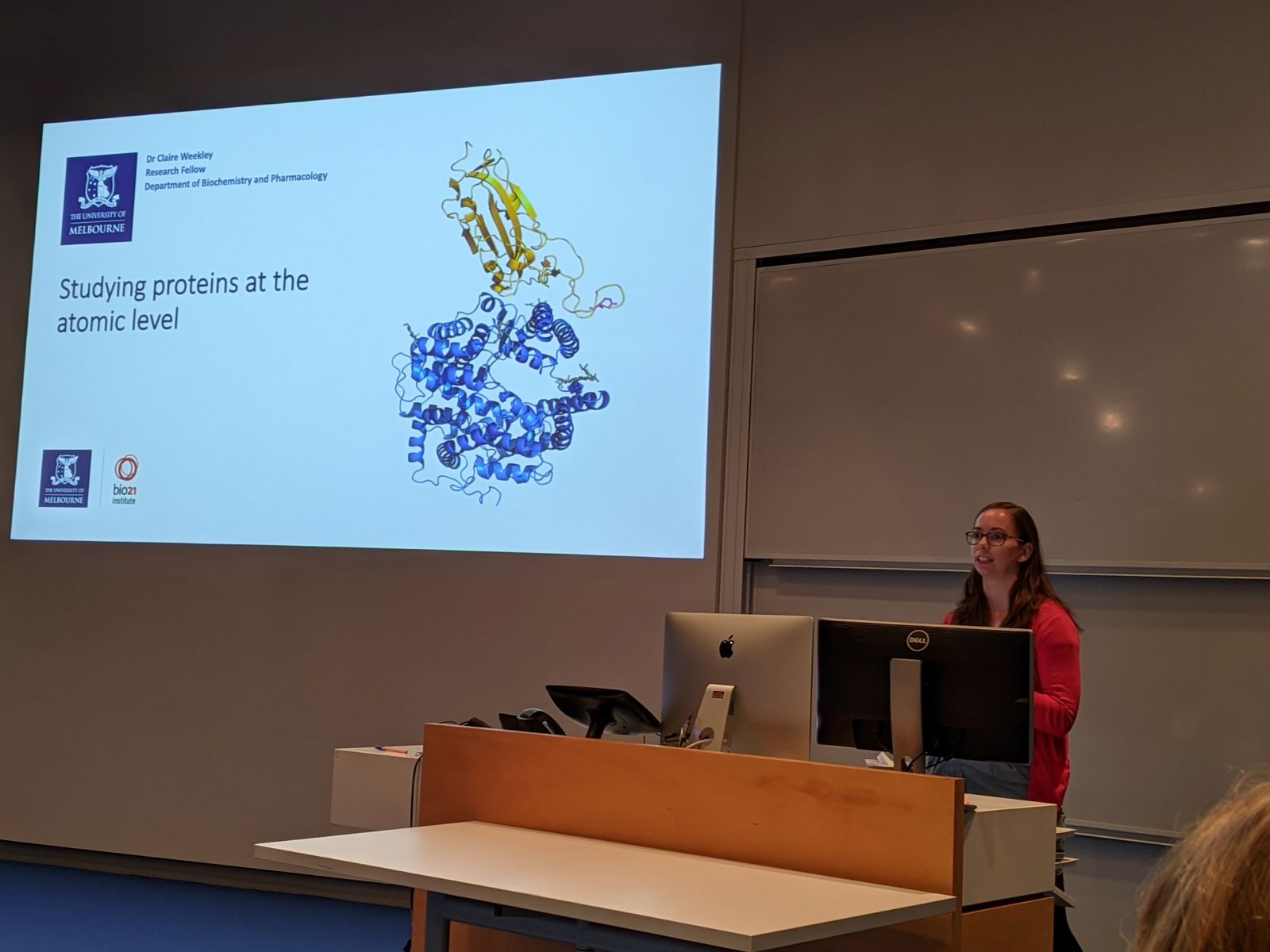 |
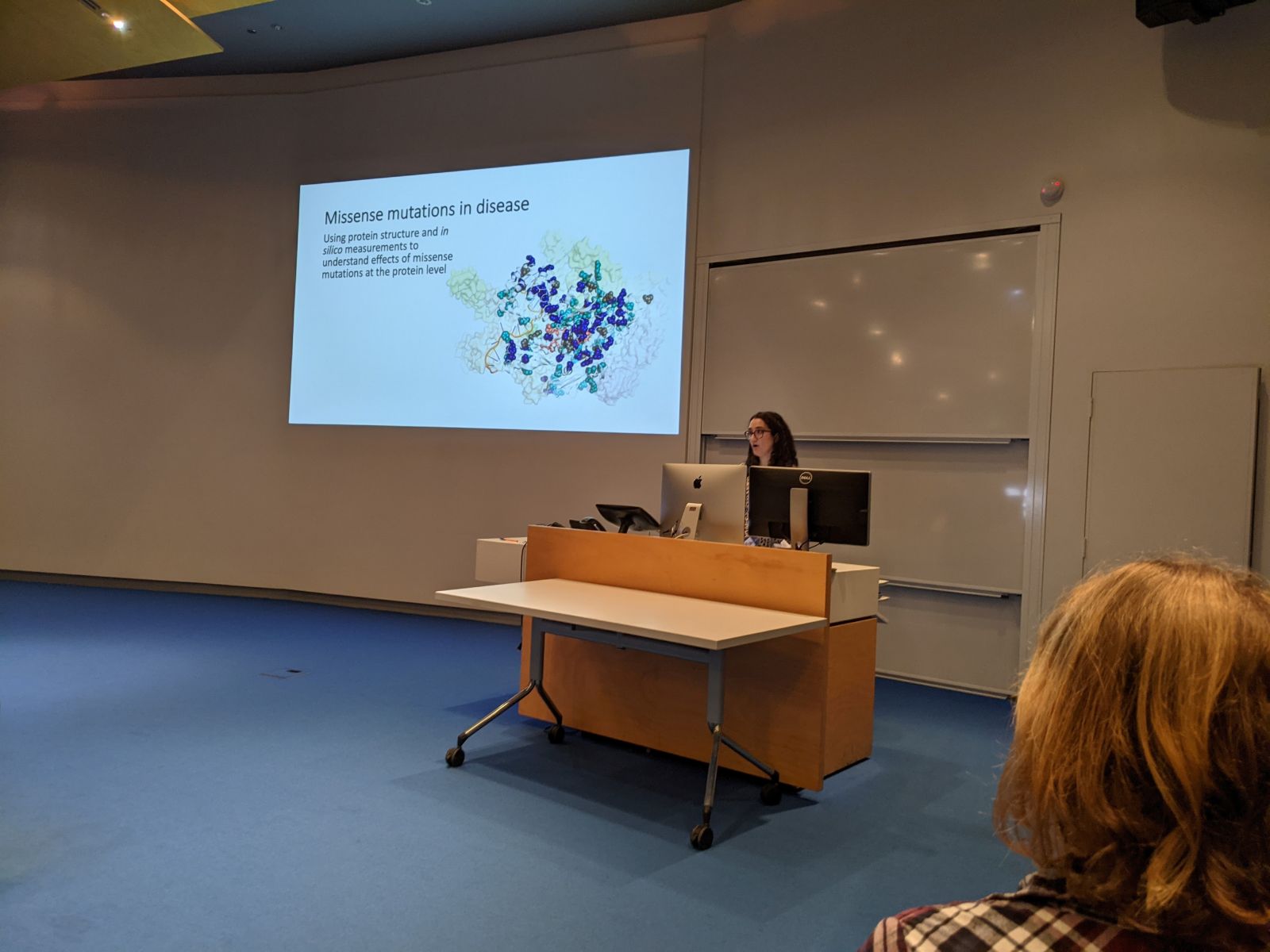 |
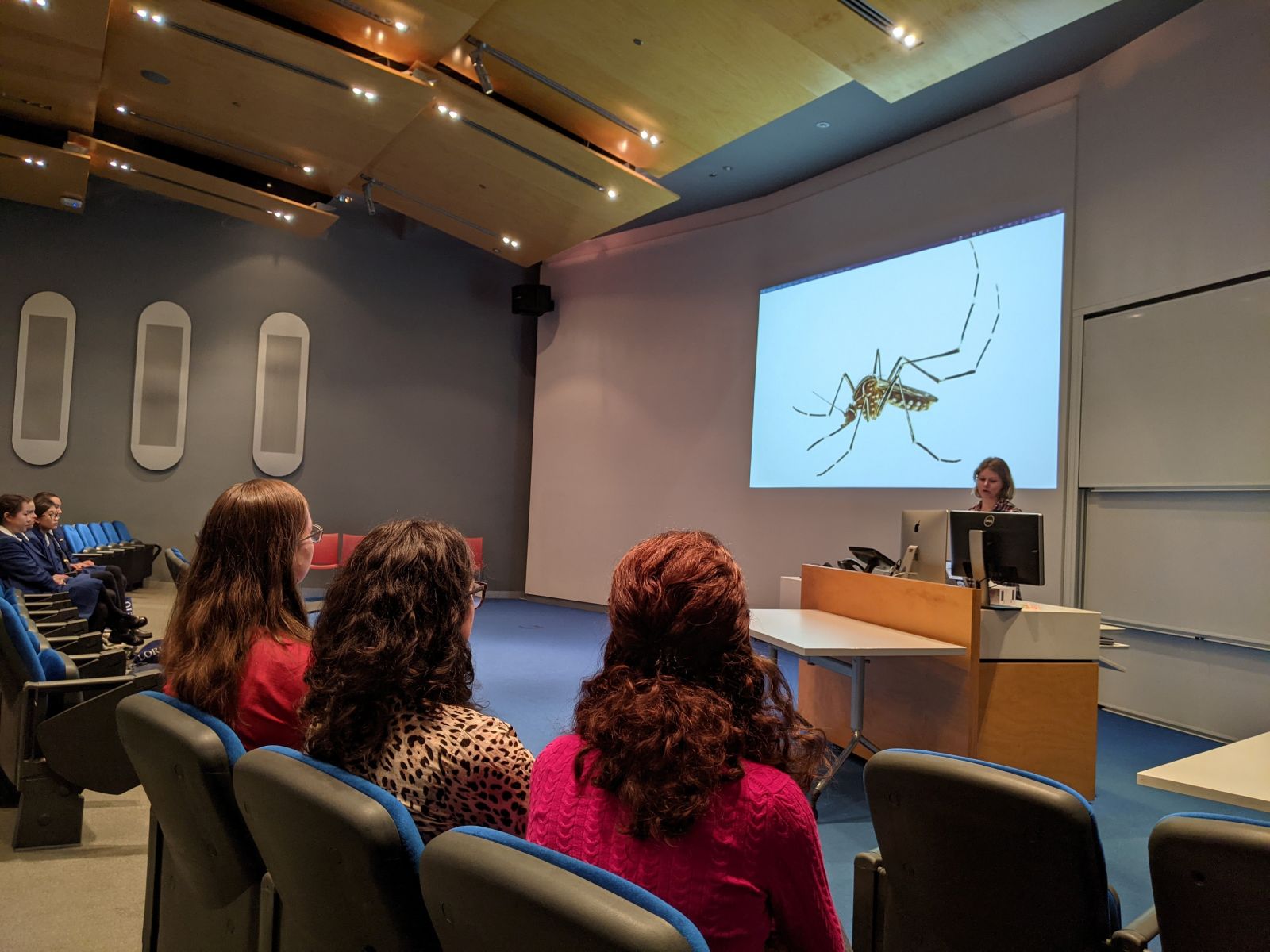 |
Loreto Mandeville Hall year 10 students visit Bio21.
The French Attaché Dr Thierry Corrège visited Bio21 on the 29th April with a particular interest in Bio21 members’ collaboration on the Grenoble Apicolipid project. I took the Attaché on a tour of Bio21’s platform facilities, where we met Marc Sani at the Magnetic Resonance Facility; Stuart Ralph (who’d spent time with the collaborators in Grenoble) and Nick Williamson in the Mass Spectrometry and Proteomics Facility; Eric Hanssen and Isabelle Rouiller at the Ian Holmes Imaging Centre and Kathryn Tiedje and Cecelia Rios over lunch in the boardroom. Meeting Thierry Corrège in person meant we could start a conversation, share our excitement for the research and facilities at the Institute and talk about how to continue to nurture the relationship between the French science community and Bio21 and the University of Melbourne. Relationships are so important, not less so at the diplomatic level and I’m sure we left a lasting impression.
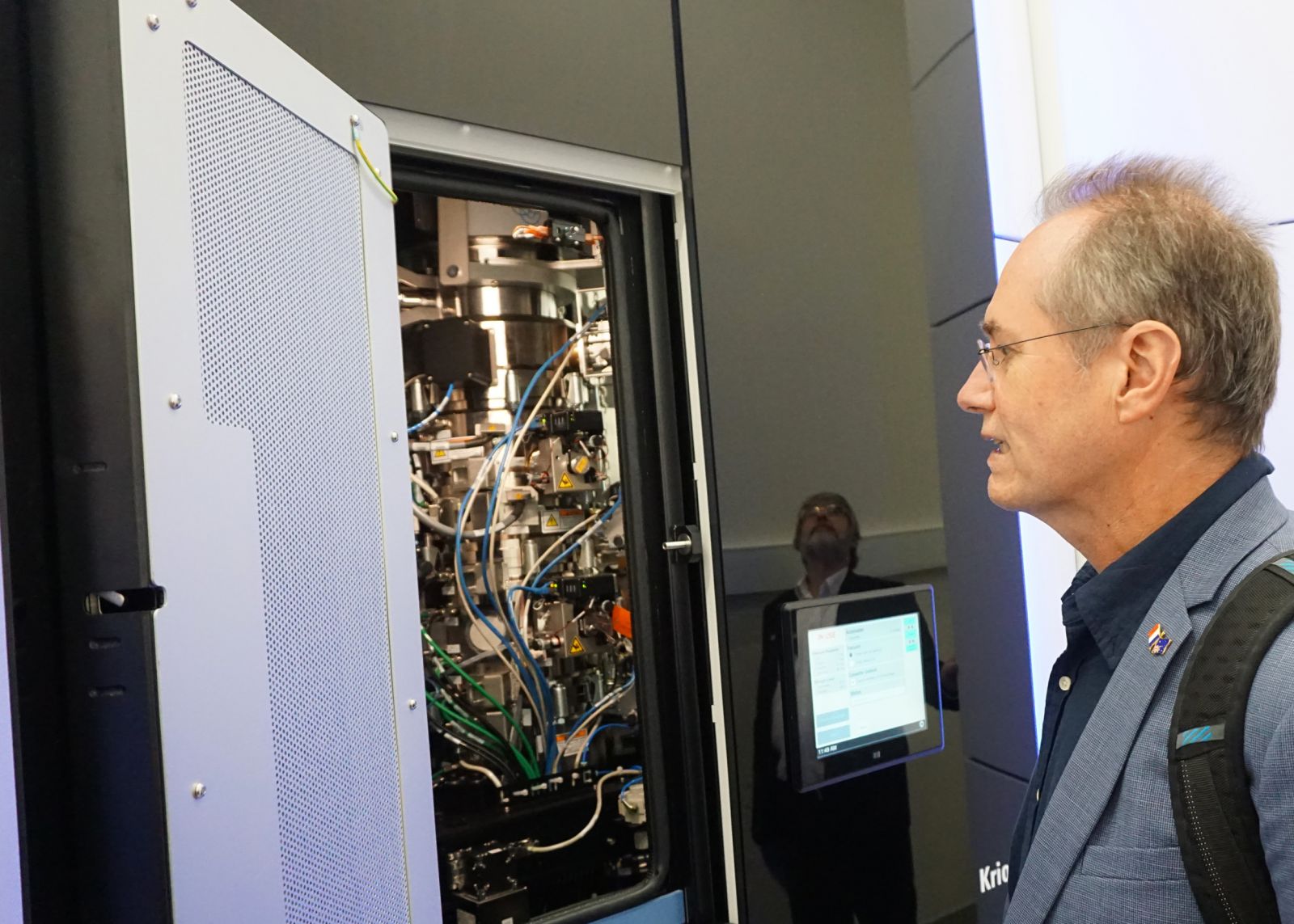 |
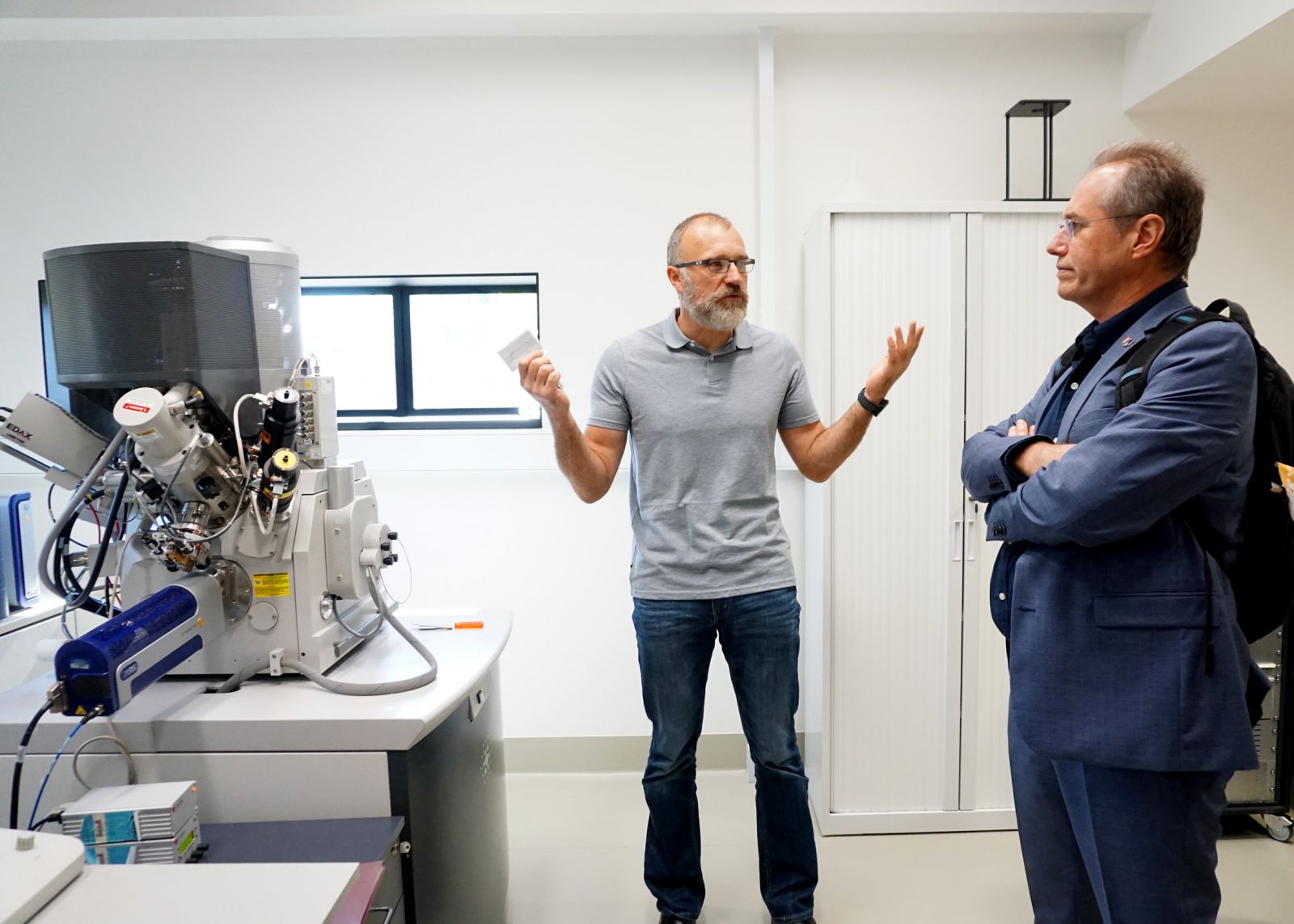 |
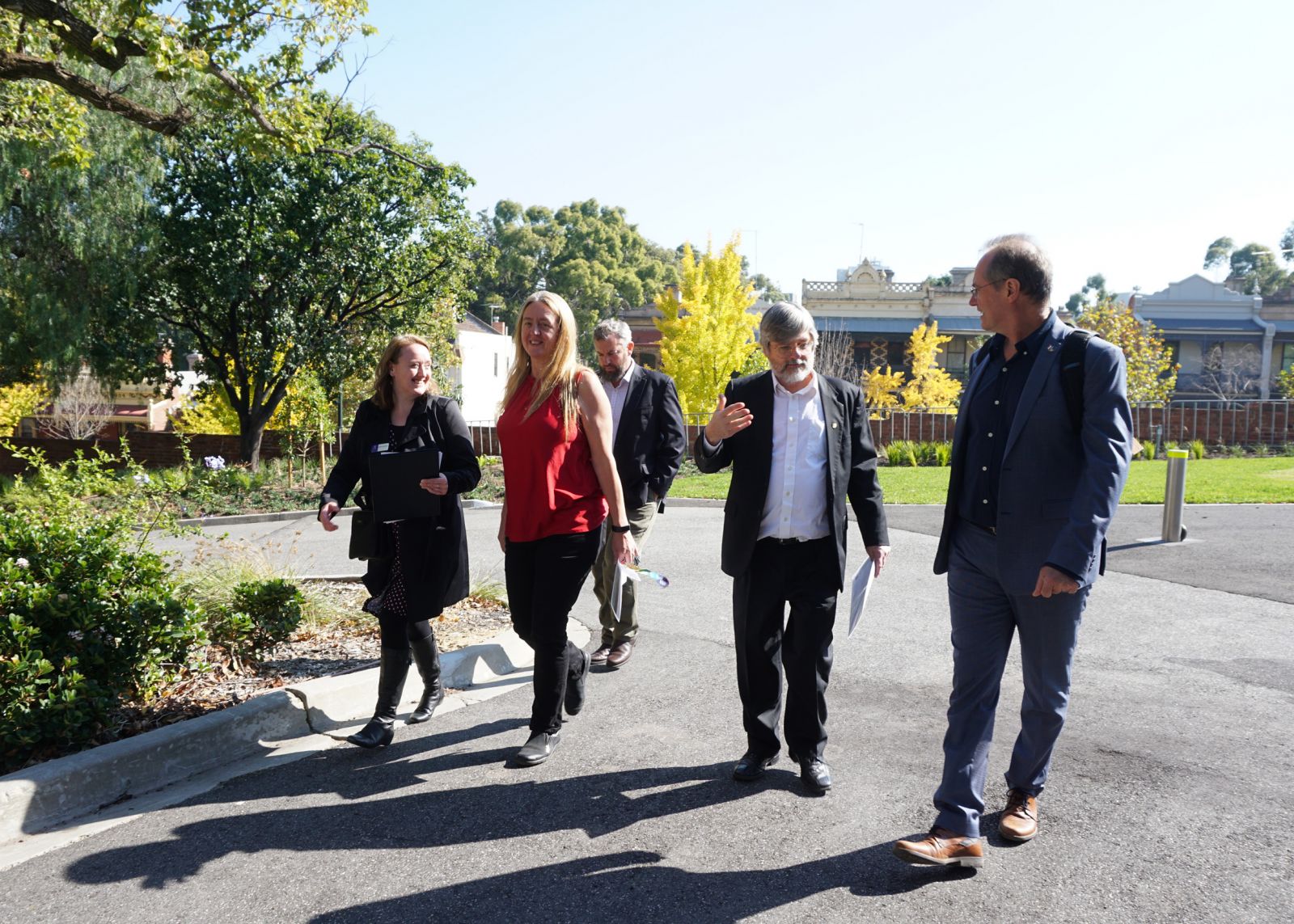 |
The French Attaché Thierry Corrège visits Bio21
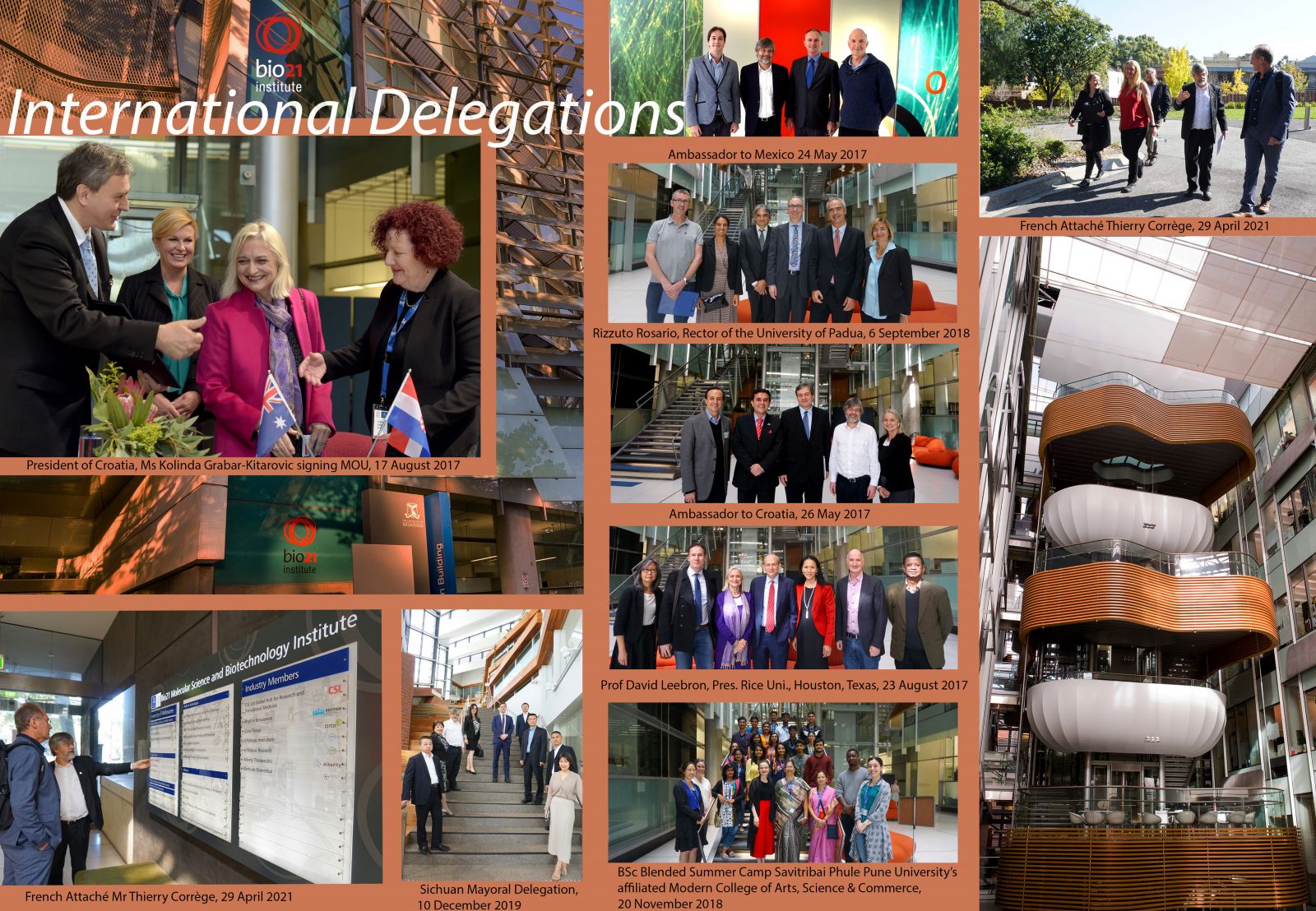
As you can see from the image above, Bio21 has always been a popular destination for international academic and government delegations visiting the University. In past years we’ve hosted the Ambassador to Mexico; the Ambassador and President of Croatia (for the signing of an MOU with the University); the President of Rice University, Houston Texas, USA the Rector of the University of Padua, Portugal as well as students from the Phule Pune University’s affiliated Modern College of Arts, Science and Commerce, India. Closed international borders have meant few delegations are able to visit Bio21 nowadays. This has certainly been detrimental to international relations, without mentioning our vitally important international students. It’s hard to truly connect across cultures without the opportunity to meet and share experiences and knowledge in person.
We are so fortunate to be able to use technology to keep connected with colleagues locally and globally, despite the SARS-CoV-2 pandemic. Also, there have been some great innovations in the event space, that make it possible to host engaging and memorable events both in person and online, such as MDHS’s incredible Dungala Kaiela Oration. Also, take a look at Eric Hanssen’s virtual tour of the Ian Holmes Imaging Centre captured using CloudPano. However, it is a reminder that the human connection that we all yearn for and that we experience at meaningful events is challenging to recreate online.
In a ‘typical’ pre-covid year such as 2018, Bio21 hosted 288 internal events; 168 external events; four international delegations; 10 school tours, with over 213 school students and ~650 members of the public, who attended Bio21’s Big Picture Seminars and the Open House weekend.
Things have certainly changed and more often than not our atrium lies empty. Although, I am encouraged at the return of our departmental seminars and PhD orations in the auditorium. With a little help and some good planning, Bio21 may yet celebrate the opening launch of the Ruth Bishop building and the Ian Holmes Imaging Centre; the launch of the ACRF Centre for Innovative Cancer Drug Discovery and welcome the new Melbourne Medical School’s Baker Department of Cardiometabolic Health in 2021, as well as some more Institute morning teas.
As our recent lockdown in Melbourne and now in other parts of the country have shown us, the pandemic is not over and we will continue to be cautious when we gather. I yearn for a post-pandemic world where we can freely gather again, to nurture our Bio21 scientific community, in a culture where we all feel we can belong, connect and collaborate.
Professor Michael Parker
Director, Bio21 Institute

